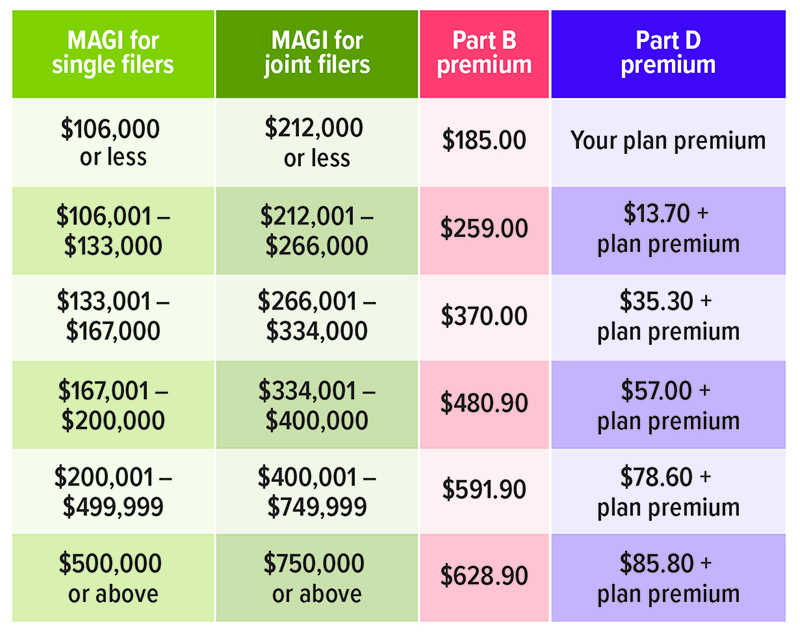
June 2025 – Will You Pay a Medicare Surcharge?
By Matthew Wisehaupt on June 6, 2025
Medicare is a federal program that provides health insurance to retired individuals, regardless of their medical condition, and certain younger people with disabilities or end-stage renal disease. Medicare has several parts, many of which include a premium cost based on your tax filing status and income. If your income is high, in some cases you may be subject to a premium surcharge called the income-related monthly adjustment amount (IRMAA).
What does Medicare cover?
Medicare coverage consists of two main parts: Medicare Part A (hospital insurance) and Medicare Part B (medical insurance). These parts together are known as Original Medicare. A third part, Medicare Part C (Medicare Advantage), covers all Part A and Part B services and may provide additional services. A fourth part, Medicare Part D, offers prescription drug coverage that can help you handle the rising costs of prescriptions.
What does Medicare cost?
Most people age 65 or older who are citizens or permanent residents of the United States are eligible for Medicare Part A without paying a monthly premium. Although Medicare Part B is optional, most people sign up for it. If you want to join a Medicare Advantage plan, you’ll need to enroll in both Parts A and B. And Medicare Part B is never free — you’ll pay a monthly premium for it, even if you are eligible for premium-free Medicare Part A. If you delay starting Part B or Part D after age 65, you may also be subject to a surcharge unless you continue to work and are covered by a workplace health plan.
The standard Part B premium is $185.00 in 2025. However, premiums for Part B and Part D can vary based on income levels. If your modified adjusted gross income (MAGI) as reported on your federal income tax return from two years ago is above a certain amount, you’ll pay the standard premium plus the IRMAA surcharge. You’ll receive a notice from the Social Security Administration if you’re subject to IRMAA.
The table shows what you’ll pay per month in 2025 based on your tax filing status and income:

What can you do to lower your income?
Most people may see a decline in their income once they retire. However, high-income Medicare recipients may want to lower their income to help reduce the potential premium surcharges. Here are some ideas:
- Put off transactions that could increase income, such as the sale of real estate or stocks.
- Defer distributions from tax-qualified accounts such as IRAs and 401(k)s as long as possible.
- Rethink the timing of converting IRA funds to a Roth IRA to avoid increased taxable income.
Since your income is based on information from two years ago, it may subsequently change, or you may experience a life-changing event (as defined by the SSA) that causes a reduction in your income. Report income changes to the SSA as soon as possible. You’ll need to provide documentation verifying the event and your reduction in income. Visit https://www.ssa.gov/benefits for more information.
Get help
Navigating Medicare programs and their costs can be tricky. You might consider consulting with an appropriately qualified professional for help.